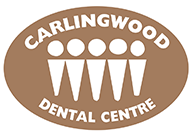Even if you take care of your teeth by brushing, flossing, and attending regular checkups with your dentist, there are many subtle habits that can still put your teeth at risk. And often, people do these without even realizing how much of a negative impact they can have on their oral health. To make sure you’re taking good care of your teeth beyond the basic maintenance routines, here are some of the most harmful habits to take note of and quit as best as possible.
Chewing Ice
It might feel refreshing and satisfying to chew on ice during those hot humid summer days. But the reality is ice cubes can easily lead to cracks or chipped teeth. Beyond the physical damage it can cause due to their hardness, the intense cold from the ice can also be painful for those with sensitivities to temperature.
Not Wearing a Mouthguard
For any athletes out there, do you wear a mouthguard each time you step onto the field or rink? If not, you’re placing your teeth in danger. Even though our tooth enamel is considered the hardest substance in the body, it doesn’t mean it’s impenetrable and can’t get damaged. Any physical activity that involves a puck, ball, bat or physical contact should be played only when wearing a mouthguard. One quick shot to the mouth is all it takes to permanently lose a tooth and alter your smile. If you struggle to find a mouthguard that fits or feels comfortable, talk to our dental team about creating a customized one specifically fitted for your teeth.
Mouth Piercings
Lip or tongue piercings are a major risk factor for teeth. These types of piercings can cause damage to crowns and bridges, can chip and crack teeth, damage braces and even knock out fillings. Since mouth piercings are in constant contact with your gums and teeth, the overall risk is always high. Aside from direct damage, they can also lead to receding gums and infections since bacteria can easily enter and build up in the mouth.
Grinding Your Teeth
Teeth grinding, otherwise known as bruxism, is a common habit that many people do, usually without realizing it. For some, it can occur during the day, often as a symptom of stress. For others, it can occur mostly at night while sleeping, also due to stress. Over time, the constant grinding between teeth can wear them down, altering the bite and leading to painful sensations in and around the mouth and jaw area. If this sounds like something you do, you can ask your dentist to create a mouthguard to wear at night to buffer the grinding between teeth. Finding a healthy way to alleviate stress and tension, like exercising daily, is also recommended.
Chewing on Non-Edible Items
Whether it’s pencils, pens, or even clothing like the cuff of a sweater, chewing on items other than food is never good for our teeth. Biting down on surfaces on a regular basis can eventually impact tooth enamel, and like many of these habits, lead to potential cracks and chips. Even as a seemingly harmless habit, it’s best to avoid it and stick with sugarless gum to chew.
Using Teeth to Open Items
Do you use your teeth to open packages or tear something off? Instead of risking your oral health, use a tool like a scissors or knife instead. Causing a potential crack in your teeth to open something is simply not worth it.
Brushing too Aggressively
Many patients believe that in order to get their teeth cleaner, they need to brush harder. This is far from the truth. Using a lot of pressure or aggressive motions when brushing can end up damaging your teeth and gums. To keep your teeth and gums clean without causing harm, use a gentle circular motion and concentrate on flicking the toothbrush upwards as you move it along the teeth and gum line. The key here is to move plaque and other debris away from the gumline to remove excess bacteria. Using a soft-bristled oscillating brush is best for getting a thorough cleaning.
Nail Biting
Nail biting is a very common habit that can not only impact your teeth, but also your jaw. When you bite down on your nails, it forces your lower jaw to reposition and jet outward which is unnatural. This can result in TMD which is a painful jaw disorder. It can also weaken your teeth, again causing chipping or cracks.
Not Drinking Enough Water
Often, it’s the simplest habits that make all the difference. Not drinking enough water each day is an example of this. Proper hydration is essential for our health, but it’s often overlooked. The reality is, drinking more water helps boost oral health in multiple ways, including fighting bacteria, rinsing food particles from our mouth, keeping breath fresh, and reducing stains. If drinking those eight glasses of water each day is a habit that you haven’t adopted, now’s a great time to start to benefit your mouth and your overall health.
We are all guilty of falling into certain habits that we often don’t even realize can be damaging to our teeth. And even though bad habits can be hard to kick, learning about how they can put our oral health at risk is one of the best ways to get motivated to change and focus on improving. If you want to learn more about how to take proper care of your teeth, or if it’s time for a checkup, contact us today at Carlingwood Dental to schedule an appointment!


